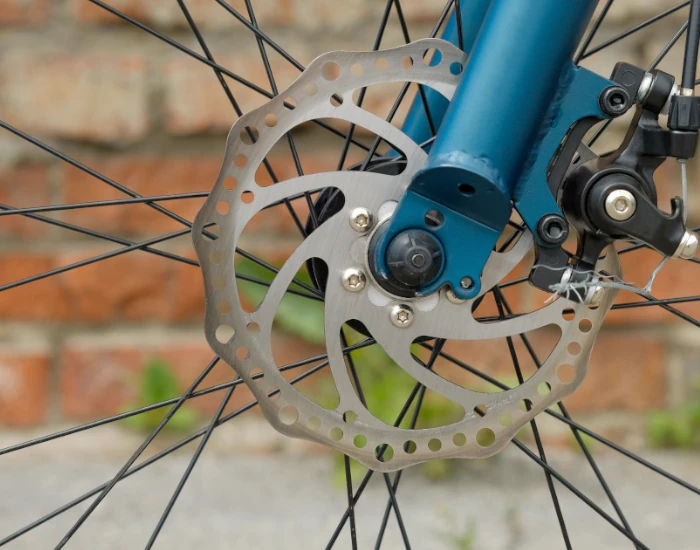
If you have been injured in a cycling accident that was caused by a defective bike or bike part, you may be entitled to claim compensation. You will need to be able to prove that the company that manufactured the faulty bike or part were responsible for the accident and the resulting injury.
Faulty bicycles
Cyclists rely on their bicycles for a wide range of uses, from commuting to work to scaling mountains at the weekend. Bicycles need to be reliable, as cyclists often travel at high speeds on busy roads and in harsh weather conditions. The consequences of a defective bike part can therefore be severe.
Common bike defects include:
- Thin tyre tread
- Dented wheel rims or bent forks
- Misaligned handlebars
- Faulty brakes
- Loose saddle
Faulty bike parts
A bicycle's individual parts and components will from time to time need replacing due to wear and tear. If a faulty bike part is fitted, it could affect the way the bike runs, causing an accident.
Examples of faulty bike parts:
- Poorly fitting brake pads
- Loose chain or gear mechanism
- Ill-fitting clip-in pedals
- In the case of faulty bike parts causing injury, the retailer may be liable, but equally if the part was fitted by a bicycle mechanic, they may be found liable.
Who is responsible?
If you have bought a bicycle from a trader in the UK, you have certain rights under the Sale of Goods Act 1979. The Act states that products purchased must be of satisfactory quality, fit for purpose, and accurately described.
Any fault in your bicycle would mean that the trader is in breach of the Sale of Goods Act. The trader has failed in their duty of care to provide you with a product that is fit for purpose.
Although the bicycle fault was most likely due to the manufacturing process, your contract on purchasing the bike is with the retailer - not the manufacturer. The retailer has sold you a faulty product, and therefore they are liable for the injury it has caused.
Under the CEN standards introduced to all European member states in 2006, bicycle retailers can only avoid being liable for a claim if they can prove that they were not the source of the defect. They have an obligation to be able to identify the supplier or manufacturer of the defective product.
All bicycle retailers, suppliers and manufacturers must take out comprehensive claims insurance to cover such instances as injury, product recalls and financial losses incurred by the consumer.
What if I knew that the bicycle or part was faulty?
If you knowingly purchased a bike with a fault, for example if the fault was made clear on a bicycle which was discounted, this may affect your claim. Speak to your lawyer to find out how it could affect your compensation claim.
What if I fitted the faulty bike part myself?
If you have fitted the faulty bicycle part yourself, you may still be able to make a claim against the retailer who sold you the product. Each case is unique, but if you unknowingly purchased a faulty product which then led to a cycling injury, the retailer is responsible for failing to provide you with a product fit for purpose.
How to make a claim for a bike fault injury
To make a no win, no fee compensation claim for an injury caused by a faulty bicycle or bike part, you must be able to prove that another party was responsible for the injury. In most cases, the party responsible will be the retailer where you purchased the bike or part.
In some cases there may be another party responsible, such as a bicycle mechanic if they recommended and fitted the part, or the manufacturer of the product if you bought it from them directly.
Your claim is more likely to be successful if you have evidence to back up your case.
Gathering evidence
Evidence which may be helpful in settling your claim could include:
- Receipts for purchase of the bicycle or part which was faulty
- Photographic evidence of the faulty part which caused the injury
- Evidence of your injuries including a medical examination
- A statement from a bicycle mechanic stating that the bicycle or part is faulty and therefore dangerous
Your lawyer will be able to advise you on gathering evidence, and arrange for any specialists required to provide statements about your injuries and the faulty bicycle or parts.
Get free, no-obligation legal advice
If you’ve been injured due to a defective bike or faulty component, our experienced team is here to help.
We provide free, no-obligation legal advice, outlining your rights to compensation and the steps for making a no win, no fee compensation claim. With decades of experience, our panel of solicitors will arrange vital support, including a replacement bike, access to medical services like physiotherapy, and ultimately securing the best possible compensation settlement.

 Written by Chris Salmon on 4th July 2016
Written by Chris Salmon on 4th July 2016
